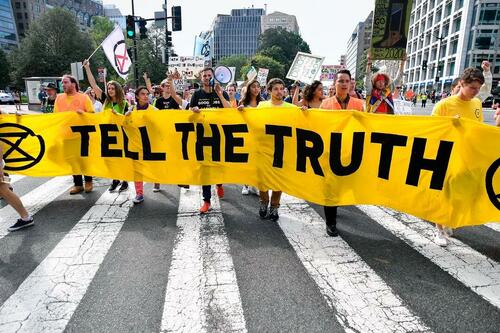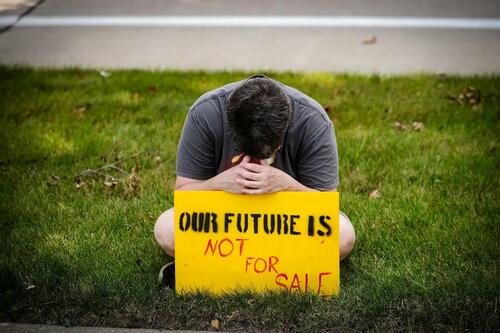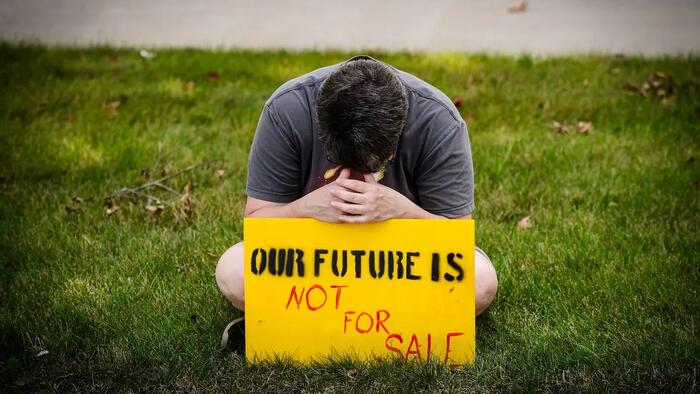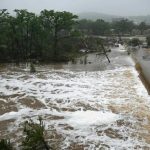Authored by Katie Spence via The Epoch Times (emphasis ours),
Sadness, depression, fear, and a deep sense of betrayal, coupled with the feeling that humanity is doomed, are some of the emotions affecting a growing number of people, particularly children and young adults around the world.
What’s driving these feelings isn’t war, worldwide unrest, politics, or escalating crime. Instead, it’s something called “eco-anxiety,” which Yale defines as fear about climate change and humanity’s existence.
“Scientists and mental health clinicians are in agreement that eco-anxiety will continue to rise and will become one of the biggest sources of mental health distress within the next year,” Melissa Porrey, a counselor who specializes in treating eco-anxiety, told The Epoch Times.
“Although symptoms of eco-anxiety can present similarly to other types of anxiety, including general anxiety, eco-anxiety is often rooted in feelings of helplessness and/or hopelessness about the changing climate and our role in it.”
As to what’s driving the increase in cases, Porrey pointed to more natural disasters, and news coverage about “what we are and aren’t doing to address global warming.”
Tom Nelson, a member of the CO2 Coalition and producer of the documentary “Climate: The Movie,” agreed that increased media coverage has likely fueled eco-anxiety cases, but said the hype around climate change goes beyond what can be backed up by science.
He said the late Stanford climate scientist Steven Schneider “said the quiet part out loud” in 1989.
Climate scientists, Schneider said, are ethically obliged to “tell the truth, the whole truth, and nothing but, ‘including’ all the doubts, the caveats, the ifs, ands, and buts.”
Simultaneously, he said, climate scientists also want “to reduce the risk of potentially disastrous climatic change,” which takes broad-based support.
“That, of course, entails getting loads of media coverage. So we have to offer up scary scenarios, make simplified, dramatic statements, and make little mention of any doubts we might have,” Schneider said.
“That dynamic is absolutely still happening today,” Nelson said.
“It’s 100 percent true that we’re seeing the purposeful increase of anxiety in youth and young adults to bring about demands for climate change action.”

Changing Behavior
The Lancet published a study that surveyed 10,000 people aged 16–25 from 10 countries and asked about their feelings regarding climate change.
Fifty-nine percent of respondents said they were “very or extremely worried” about climate change, 75 percent said the “future is frightening,” and more than half of respondents said the government had betrayed them by failing to take appropriate action to address climate change.
The 2021 research was sponsored by political action group Avaaz. The group’s website explains how “painstaking work, usually behind the scenes, by dedicated people” can channel “a massive, public outcry” to influence major decisions.
A year later, the Journal of Environmental Psychology published a study that called climate anxiety a “significant psychological burden.”
It also said, “climate anxiety may not necessarily be a negative impact of, or maladaptive response to, climate change; but rather, at least to some degree, be a motivating force for effective action.”
The authors said the results of the study can be used to find ways to support people in managing their “climate change-related psychological distress, in such a way as to promote wellbeing and pro-environmental behavior.”
Study author Lorraine Whitmarsh said the study suggests some levels of climate anxiety are beneficial to society.
“Ours is now one of several studies showing consistently that climate anxiety is positively linked to climate action,” she told The Epoch Times via email.
“It seems to be important as a motivator for action and taking action may also be a helpful coping mechanism to keep anxiety in check.”

The study surveyed 1,338 United Kingdom residents and was funded by the European Union’s European Research Council, which is itself funded by Horizon Europe.
Horizon Europe’s strategic plan for 2025–2027 is to find ways to address climate change by spurring the “green transition” and bringing forth “a more resilient, competitive, inclusive and democratic Europe.”
The European Research Council didn’t respond to The Epoch Times’ request for comment by the time of publication.
In 2023, Penn State researchers released their own study, which investigated how “frightening news about climate change” impacts people.
“Our findings suggest that people have gotten used to doom-and-gloom reporting around climate change and what may be more important for motivating them to take action is that they see coverage of it on a daily basis,” Jessica Myrick, one of the researchers, said in a press release.
“This is called an agenda-setting effect, where a topic that is covered more often in the news is then viewed as more important by people who consume the news.”
In May, the Journal of Health Communication published its report that used a cross-sectional survey of 440 college students to determine if media exposure to climate change has an impact.
Among other results, the study found “that the frequency of media use and attention given to climate change news significantly predicted climate anxiety.”
“The media plays a crucial role in shaping public perceptions of issues such as climate change,” study author Emmanuel Maduneme told The Epoch Times via email.
As a result, he believes it’s the media’s responsibility to translate complex scientific information into easily understood facts that convey the urgency of the climate change situation without “sensationalizing it.”
“If the media realizes its outsized role in shaping reality, especially among young people, then it should pay close attention to the way news coverage impacts the mental health of its audiences,” he said.

According to Maduneme, there’s a curved relationship between climate change anxiety and climate action—low to moderate levels encourage people to take preventive and adaptive actions to fight climate change, while too much anxiety can cause people to disengage.
The study found that “liberal-leaning respondents” were more prone to eco-anxiety and were more likely to take “pro-environmental action.”
A recent study from Brookings, one of the largest U.S. think tanks, found that climate coverage has surged 300 percent since 2012, with the most significant increase occurring over the past five years.
Nelson, however, expressed concern about the subsequent impact of climate-related restrictions on people’s lives.
“They have to scare us enough that we’ll buy into all these crazy restrictions on our lifestyle. If that anxiety and fear goes away, then they can’t sell any of it,” he said.
Focusing on Change
Porrey said eco-anxiety often arises from the feeling of having no control, and, as it can be isolating and overwhelming, it should be treated at a personalized level.
As possible treatment, Porrey often suggests seeking controllable actions that benefit the planet, such as biking to work, joining a “Climate Café,” connecting with nature, and volunteering.
Read the rest here…
Loading…











